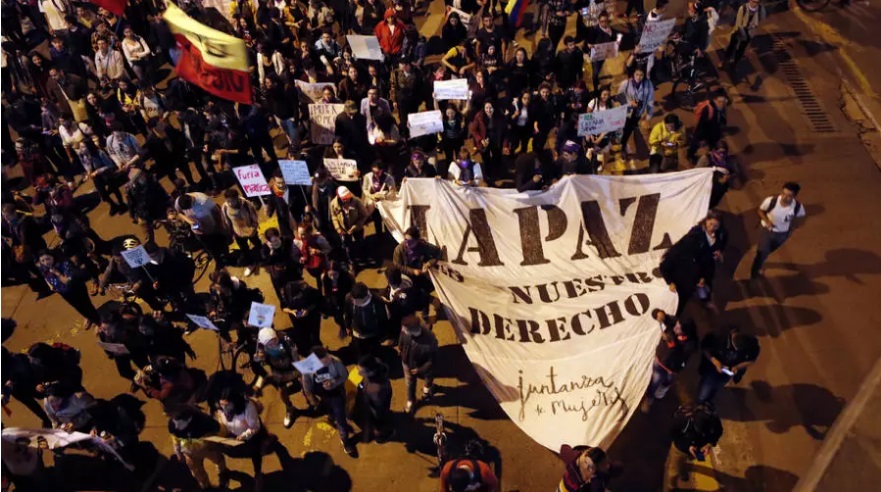In an interview granted to the International Observatory for Migration and Human Rights ARGOS, the executive secretary of the Permanent Committee for the Defense of Human Rights in Colombia, José Rubiel Vargas, asserted that the Government’s failure to implement the commitments assumed in the Peace Agreement, signed in November 2016, generated since that year a new wave of violence and systematic human rights violations throughout the country.
The lawyer mentioned alarming figures of homicides against social leaders: more than 800 victims and up to April 30 counted 272 murders of former combatants of the former Revolutionary Armed Forces of Colombia (FARC), not counting their relatives, mostly women and children.
He commented that the four years prior to the signing of the Peace Agreement (2012-2016), Colombia went through a period of calm in terms of human rights violations, but from 2016 the armed violence against women, children, peasants, social leaders and defenders of fundamental rights resumed.
Rubiel Vargas specified that the Colombian Government failed from the beginning to comply with the principle of good faith contained in the agreement, which has generated a worsening of violence and its consequences.
In addition to being victims of assassinations, former guerrilla combatants have been forced to move from their areas due to the threats they receive, said Vargas, who also stated that the number of armed organizations has increased, estimating that there are 7,200 armed men in Colombia, a number almost the same as when the FARC operated before handing in their weapons after the peace agreement.
The human rights defender pointed out that the Government has also failed to comply with the Illicit Use Crop Substitution Program and that, on the contrary, it implements fumigation with harmful effects on people’s health and damage to nature, in addition to which a real humanitarian crisis is evident with more than 4 thousand peasant families deprived of liberty, unjustly charged for the crime of drug trafficking.

